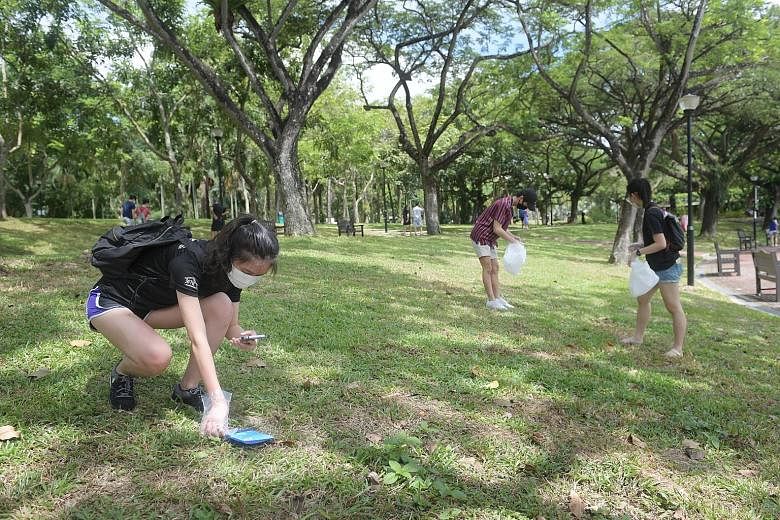Changes to the law on cleaning standards are expected to be passed in Parliament next month to help the country deal with Covid-19 and other health risks, said Minister for Sustainability and the Environment Grace Fu yesterday.
She said the amendments to the Environmental Public Health Act are part of efforts to boost Singapore's resilience against the current pandemic and dengue outbreak, as well as future public health threats.
The changes include implementing mandatory cleaning standards, such as a regime specifying the frequency of routine cleaning and deep cleaning for disinfection. Environmental sanitation controls will be enhanced and more accountability will be required of premise owners.
The proposed changes were announced earlier this year when Singapore was in the early stages of its fight against Covid-19.
The new rules will be progressively implemented from next year, starting with higher-risk sectors with high footfall, and areas with vulnerable users, such as childcare centres, said Ms Fu, who was speaking at a virtual launch of the Public Hygiene Council's (PHC) month-long Keep Clean, Singapore campaign.
The annual campaign encourages Singaporeans to take ownership of the cleanliness of shared public spaces. This year's event aims to highlight that Singapore is in a "war against littering", by getting Singaporeans to recognise that litter is not just an aesthetic problem but also a public health threat.
Ms Fu also gave an update on the number of premises that have been awarded the SG Clean quality mark, which signifies if an operator has met certain hygiene standards.
As at the end of last month, more than 22,000 premises have received it, she said. "This mark will be important to businesses, such as hotels and restaurants, who want to get their customers back by assuring them of the measures taken to safeguard their health."
Ms Fu added that ensuring the cleanliness of the public spaces "is our shared responsibility". "Beyond what the Government and owners of premises can do, members of the public - that's us - must help keep Singapore clean," she added.
Ms Fu cited the latest Public Cleanliness Satisfaction Survey released by the Singapore Management University on Friday. About 87 per cent of respondents acknowledged that Singapore is clean only because of its cleaning services' efficiency. The survey was based on responses collected from last December to April.
Yesterday, the essential work of cleaners was recognised by the PHC. Singapore's clean and green image is largely the hard work of its army of over 59,000 cleaners.
PHC chairman Edward D'Silva said the cleaners are "true heroes" in keeping the city clean.
"Their contributions are significant but there is an inherent complacency in Singaporeans who are today over-reliant on cleaners to clear up the mess we often leave behind," he said. "Singaporeans can do more by encouraging a culture of shared responsibility and taking strong ownership of cleanliness in public spaces."
As part of the campaign, the public is encouraged to conduct small-scale litter-picking activities - in groups of no more than five people - at their estates, beaches or parks.
The PHC had originally planned to launch SG Clean Day yesterday. It is an islandwide initiative aimed at ceasing public cleaning for a day and encouraging residents to participate in clean-up activities.
However, this had to be shelved because of the ongoing pandemic.
Many volunteers across the world, including Singapore, took part in an initiative by the Alliance to End Plastic Waste to remove litter from the environment.
Unlike past clean-up efforts, this two-week All Together Global Cleanup campaign, which started yesterday, encourages participants to take photos of each piece of litter disposed and geo-tag the images on a mobile application called Litterati.


